Breaking Free: When My Dyslexic Son Left School
Dispatches from DyslexiaLand by Cheri Rae

Letting go of expectations and breaking free to fly.
My dyslexic son was not one of those students. He always considered school the time he had to spend in-between what he really wanted to do.
“I’ve finally given up on the idea that school would be for me what it is for other kids. I sit there and listen; they sit there and learn. I’m really over it all.”
With those words, my 21-year-old son ended his academic career at the local community college. He was six units short of an AA degree.
After spending 15 years where he felt like he didn’t belong, he finally broke free of school.
He. Was. Done. Done. Done.
He was done feeling dumb in countless ways in the confines and expectations of public school where his creative, big-picture learning style simply never fit in. If ever there was a square peg in a round hole, it was him.
When parents are in charge, we pave the way for our dyslexic child’s education. We learn everything we can and do our best to work with the system, standing up to it when we must. We get our kids tested, and fight for accommodations to help them achieve and reach their full potential. It takes some time to figure out how best to meet their needs as we realize that accommodations are no luxury, they are their right, and supported by local, state and Federal law.
By the time our children turn 18, the law considers them adults—in charge of their own lives, their education, and yes, their own IEPs. I remember the panic I felt at that final IEP meeting, in his senior year of high school, when the assembled educators turned to my son and told him that he could make his own decisions about his education now.
He was doing so well, they said. They encouraged him to sign away his rights to special education—as if it was some sort of rite of passage that he was ready to take on. My mind raced. Seated across from him I tried to telegraph to him, “It’s six months before graduation, and you still need the accommodations to pass your classes. Please, please, please, don’t opt out of special education now.” Thankfully, he decided to keep his plan in place. And I didn’t have to say a word.
Throughout that last year of high school, he managed to withstand the constant barrage of questions about where he was going to college. When he finally announced he was taking a gap year, there were disbelieving stares at him, at the very idea he might get off the education track and never get back on again.
When he turned down academic and athletic scholarships, other parents thought we had lost our minds. What kind of terrible parents were we, anyway, to let him do this? Sometimes we wondered. But we also knew he was mentally and emotionally exhausted after high school, and that it was unlikely that any high-pressure university experience would turn out well.
Turns out that gap year was the best decision he could have made. Through a series of overseas adventures, apprenticeships and jobs, he rejuvenated his spirit and motivated himself to take on college work. His very academic girlfriend, a self-described “science nerd,” appreciated how his easy-going approach to life was a good balance to hers, but on their return from a two-week trip to Kauai, he announced he was going back to school. Clearly she had more influence on him than anyone else.
When he enrolled in college, this dyslexic student who still needed accommodations no longer wanted to sign up for them. Like a number of college students I’ve worked with, he had a bit of magical thinking going on, believing he’d outgrown the need for extra time at the very least. He adamantly refused, and reminded me it was his decision to make.
I was not pleased by his decision, but I was no longer in charge of his education—not an easy realization for this dyslexia advocate mom. I had to do a lot of soul-searching about what was really important, and remember that I had raised him well. Roots and wings and all that.
He has high expectations for himself—neat, organized and wanting to excel in just about everything he attempts. Plenty of grit in that kid, it just doesn’t show often in the academic environment. Meteorology was a favorite class, so was the History of Rock, and he liked marketing courses where group projects were required. Others, like English Composition, caused him no end of misery. In those classes that are all about reading the textbook, taking notes and performing on the mid-term and the final, there’s very little room to recover a misstep. He dropped several classes because he could never overcome a low grade—and had no desire to deal with it. Yes, accommodations would likely have helped, but still he refused.
And then, after the last Spring semester, he announced he wasn’t going back.
My husband, who graduated from USC film school and earned an MFA after that, was beside himself when our son “dropped out.” I, who earned a BA in political science as a returned student in my early 30s, had a more sanguine approach to his decision. My concern was more for our son’s emotional well-being and his sense of self-esteem. And after many heartfelt conversations, I understood and respected his decision to close the door on the classroom.
Will he return? I don’t know. Maybe. When he’s ready.
In a few months, many of his high school classmates will be graduating from college—some from ultra-competitive schools that were right for them. But there are plenty of others who aren’t in college anymore. Some of my son’s friends are working in array of jobs: a ski instructor, a bike shop mechanic, a restaurant manager; my son now works as a valet/bellman at a 5-star resort, and is learning more about marketing from a mentor. And, in their early 20s, they’re having fun—fly fishing in Montana, mountain biking in Canada, riding motorcycles in Southern California.
Most importantly, they’re not stressing about testing, no longer worried about not keeping up, or feeling humiliated in classes where they feel so out of place. They are healthy, they are happy, and they are—at least for now—living the lives they imagined.
Like just about everything else in this long dyslexia journey, it’s not what I imagined. It’s thinking, living outside the box—and having the courage to change expectations and redefine success. We’re all learning. It’s a lifelong process.


